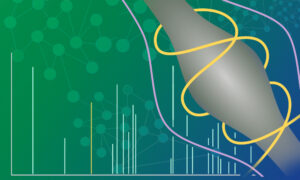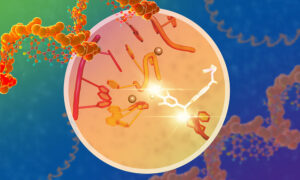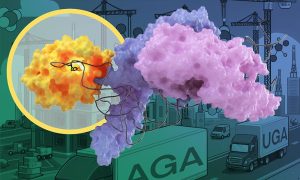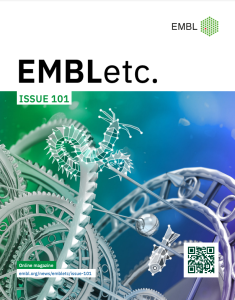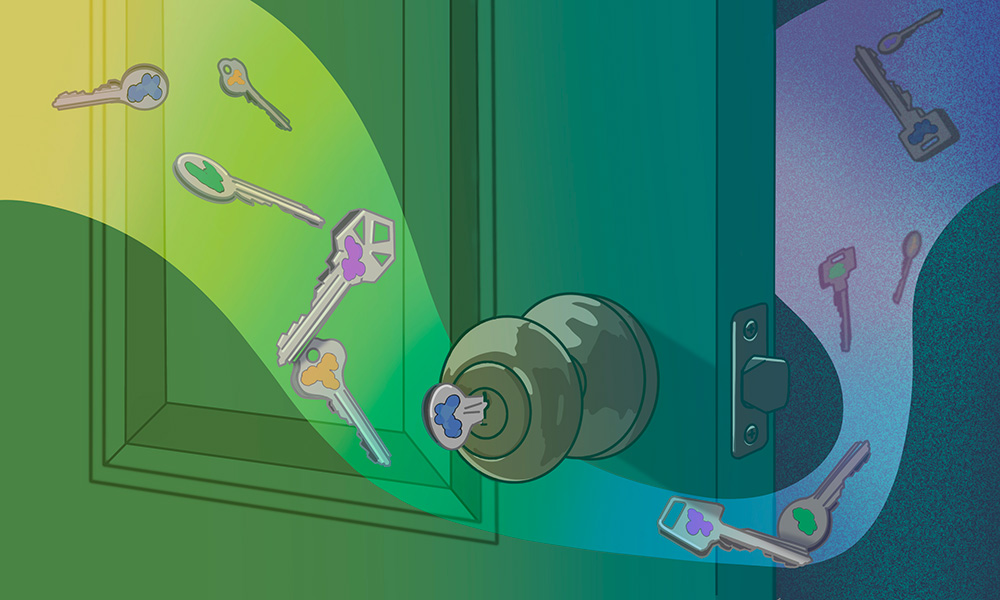Read the latest Issue
One disease, two mechanisms
Prostate cancer in younger patients is triggered by a different mechanism than in older men
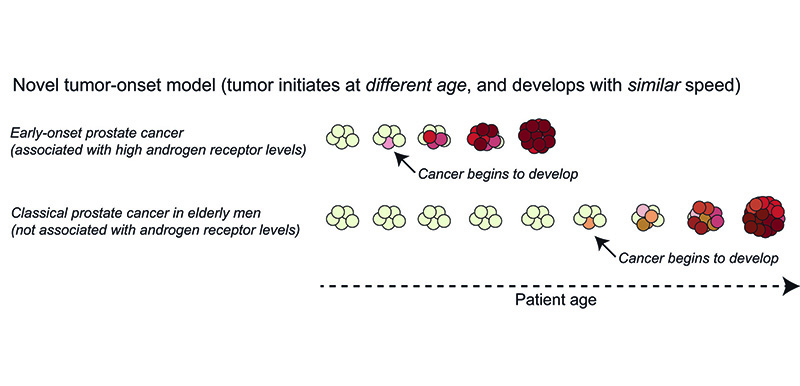
In a nutshell:
– Depending on the age of the patient, prostate cancer can be caused by two different mechanisms
– The mechanism leading to prostate cancer in younger patients is triggered by androgen hormones and induces important rearrangements in the genome of the tumour
– Understanding how prostate cancer is triggered in younger men could have widespread clinical consequences for diagnosis and treatment
While prostate cancer is the most common cancer in elderly Western men it also, but more rarely, strikes patients aged between 35 and 50. Scientists at the European Molecular Biology Laboratory (EMBL) in Heidelberg, Germany, in collaboration with several other research teams in Germany*, have discovered that such early-onset prostate cancers are triggered by a different mechanism from that which causes the disease at a later age. Their findings are published today in Cancer Cell, and might have important consequences for the diagnosis and treatment of prostate cancer in younger patients.
The researchers compared the genomes of 11 early-onset tumours with 7 late-onset tumours and observed marked differences at the molecular level. The genomes of early-onset prostate tumours undergo a relatively small number of changes compared to tumours that develop in older patients.
However, this small number of events leads to crucial exchanges of DNA between chromosomes, causing genes that are normally independent to become tightly linked (known as ’fusion genes‘). Many of the genes affected by these rearrangements are usually activated by androgen hormones, such as testosterone. Through these rearrangements they become connected to cancer genes, resulting in fusion genes that can be activated by androgen hormones, so that otherwise inactive genes with the potential to cause cancer are now switched on.
“Prostate cancer in young patients appears to be specifically triggered by androgens and to involve genetic alterations that distinguish this cancer from prostate tumours in older patients,” explains Jan Korbel, who led the study at EMBL. “We also measured the levels of androgen receptors in a large cohort of patients from Hamburg, and found data consistent with our initial genomic analysis.”
Younger patients with prostate cancer tend to have higher levels of androgen hormone receptors than older patients with the same disease. This could be a natural effect, because the level of these hormones decreases in men older than 50. But it supports the researchers’ conclusion that androgens might trigger the mechanism leading to prostate cancer in younger patients, and not in older ones.
Further research is needed to provide the scientific and medical community with more details, particularly regarding the medical impact of testosterone levels in men. However, in the future these findings may have widespread clinical consequences. “We hope that our findings on the cause of the disease will promote the development of new strategies to diagnose, prevent, and even individually treat this cancer,” explains Thorsten Schlomm from the Martini Klinik at the University Medical Center Hamburg-Eppendorf (UKE).
* This study is a part of the International Cancer Genome Consortium (ICGC) project. In addition to EMBL, it involves the Martini-Klinik and the University Medical Centre Hamburg-Eppendorf, both in Hamburg, the German Cancer Research Center (DKFZ) in Heidelberg, and the Max-Planck Institute for Molecular Genetics in Berlin, all in Germany.
